Music group Andante
Miwako Sato
I started piano when I was about 5 years old. I was in the piano department from middle school, so I practiced hard for the exams that happen twice a year. It wasn’t like I wanted to play the piano, but rather piano was the only thing I would do out of anything else. Now, I play for myself, teach it at school and at home.
I will never forget the competition I had when I was in the 6th grade. I played Mozart. During the performance, I felt like I was in the clouds. I must have been in the moment. I was so concentrating that I could think of nothing else but just to play.
Music is like a sport: you have to practice over and over again. When you play in front of the public, you have to play at least 500 times. The basis of a musician is to practice persistently. It’s hard work to get to that point, but without that you cannot enjoy it.
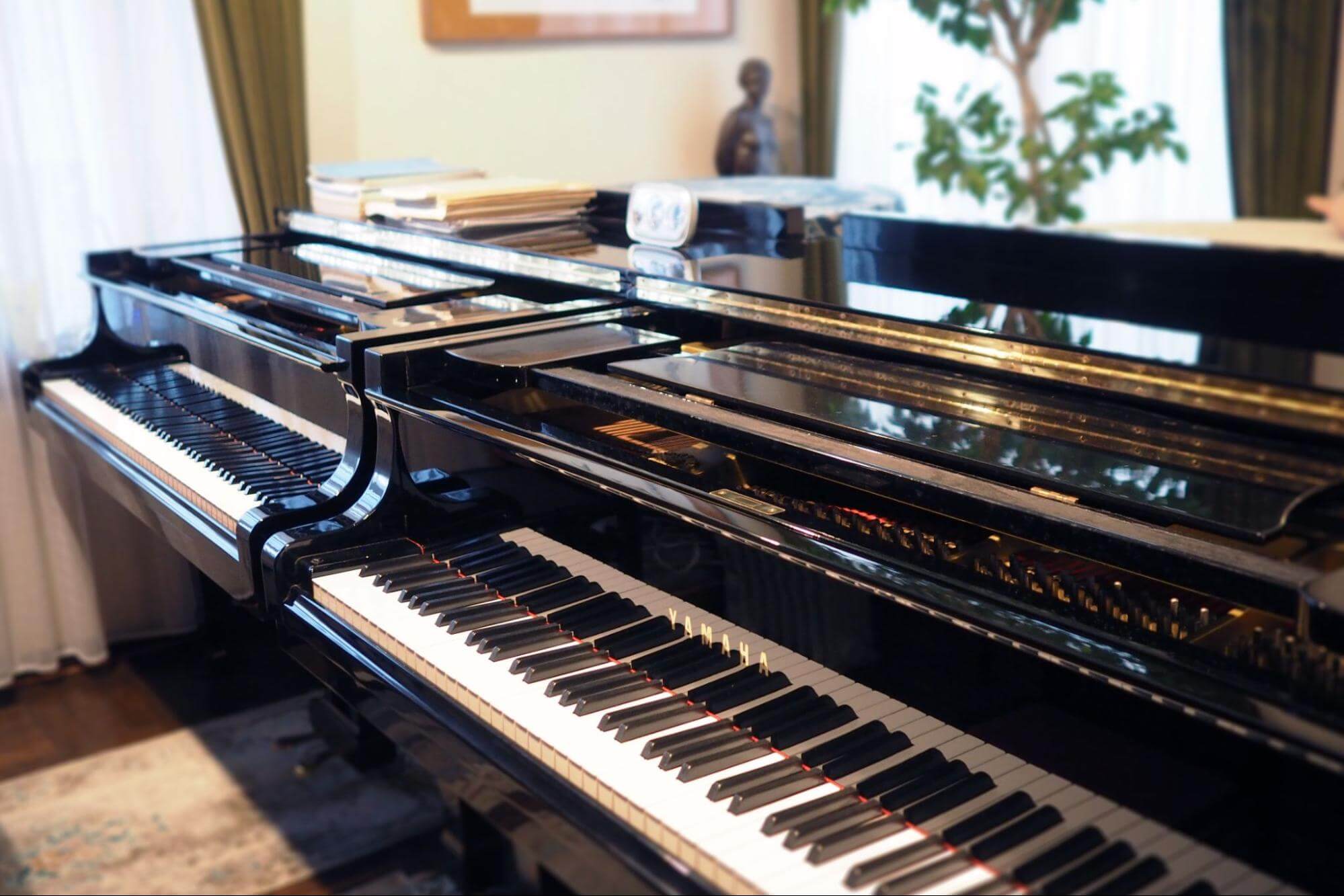
I met a teacher named Saburo Aoyama, when I was in the 3rd grade of junior high school. I was influenced by his attitude and way of thinking about music. He says that “not only playing music, but also expressing one’s originality to make it authentic. One can’t just imitate someone else. Music is not music unless it is your own.”
Music has a score, right? You read what the composer has written as symbols, interpret them on your own, and produce sound. But, the way you read a score can change the way you play it. For example, “Hello, everyone,” can be read as “Hello, everyone,” or “He, lloo, eve, ry, one.
Of course, you should pay respect to the composer and not play in a way that deviates from the composer’s style. But don’t just follow the notes. It is important to feel the music. That is what matters.
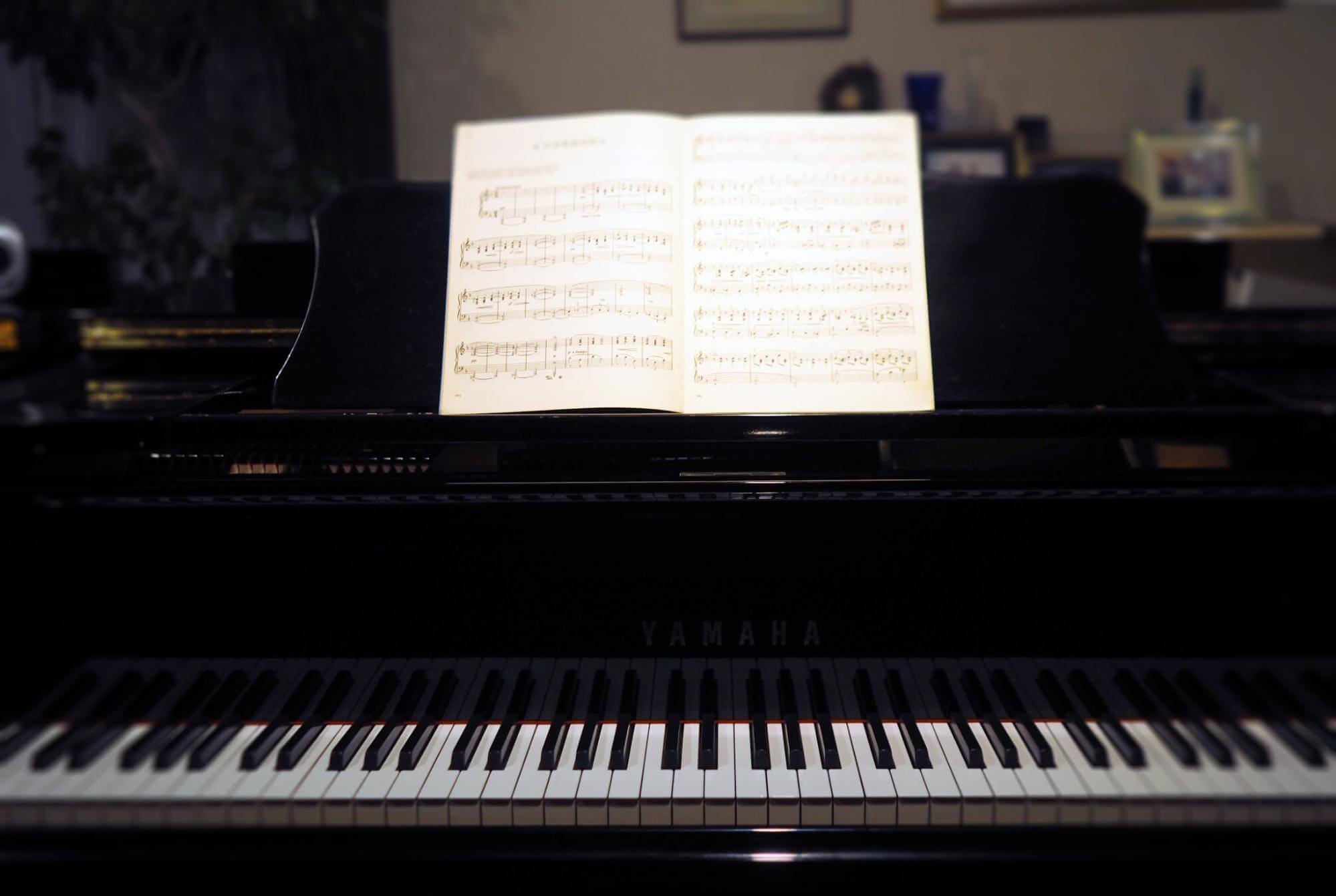
Instead of just playing notes, play it as if you really were to say “Hello, everyone.” Then the music becomes clear as words. It’s like the music becomes the words. Then you can understand it, and it becomes more enjoyable. It’s not just about following the notes. It’s more about feeling. I think that is important.
Even if it sounds strange to other people, that’s okay. If the student wants to play it that way, it is important to respect that. I want the music to be exciting, not only about the score. I want the music to be lively.
You can tell what kind of practice people have been doing just by sitting down at the piano. Once they play, you can tell if they have been busy this week or not. I think music shows the people themselves.
Some of my students have become teachers or professionals. Even if they don’t make music as their profession, it would be nice if they continue with it for a long time, enrich their musicality, and fall in love with it.
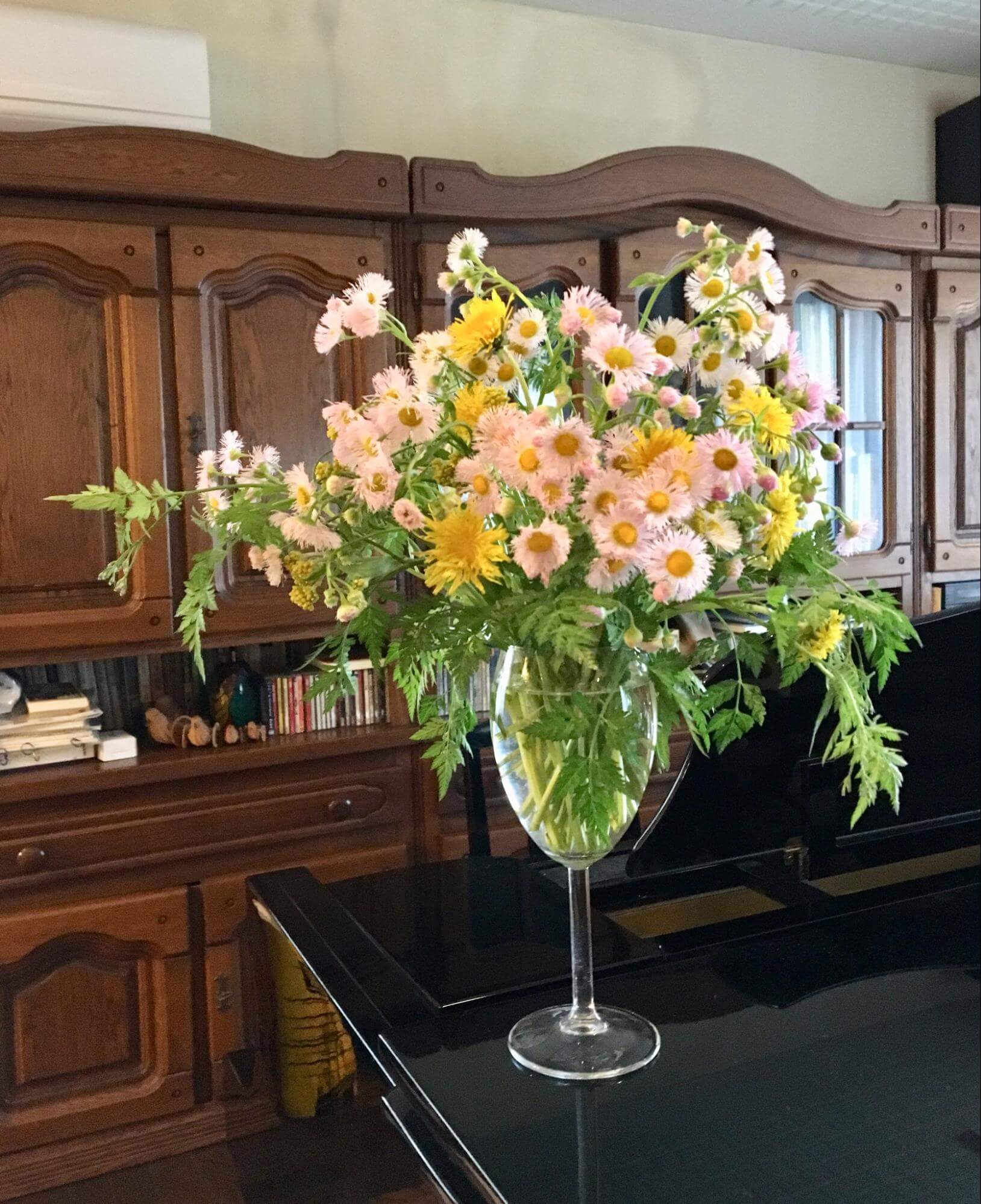
In addition to playing the piano, I have always been involved in flower arrangement. I look at each branch, choose which one to use, and cut it. It seems to suit my taste to improvise as I go along. These days, I like to arrange only natural wild flowers.
It is important to find the right combination of flowers. That is something I have learned in my practice. I like flowers that are quite spontaneous. I like to make the most of the flower itself. That may have something in common with the way I think about music. Also the part where you have to keep practicing.
Playing a musical instrument is hard work. But I hope I can do it until I die. Music is something you can’t stop even if you want to. Recently, I have started a project “brain training recorder” to be active and enjoy as a musician throughout my life. Through my project, I hope to be able to play a part in society.
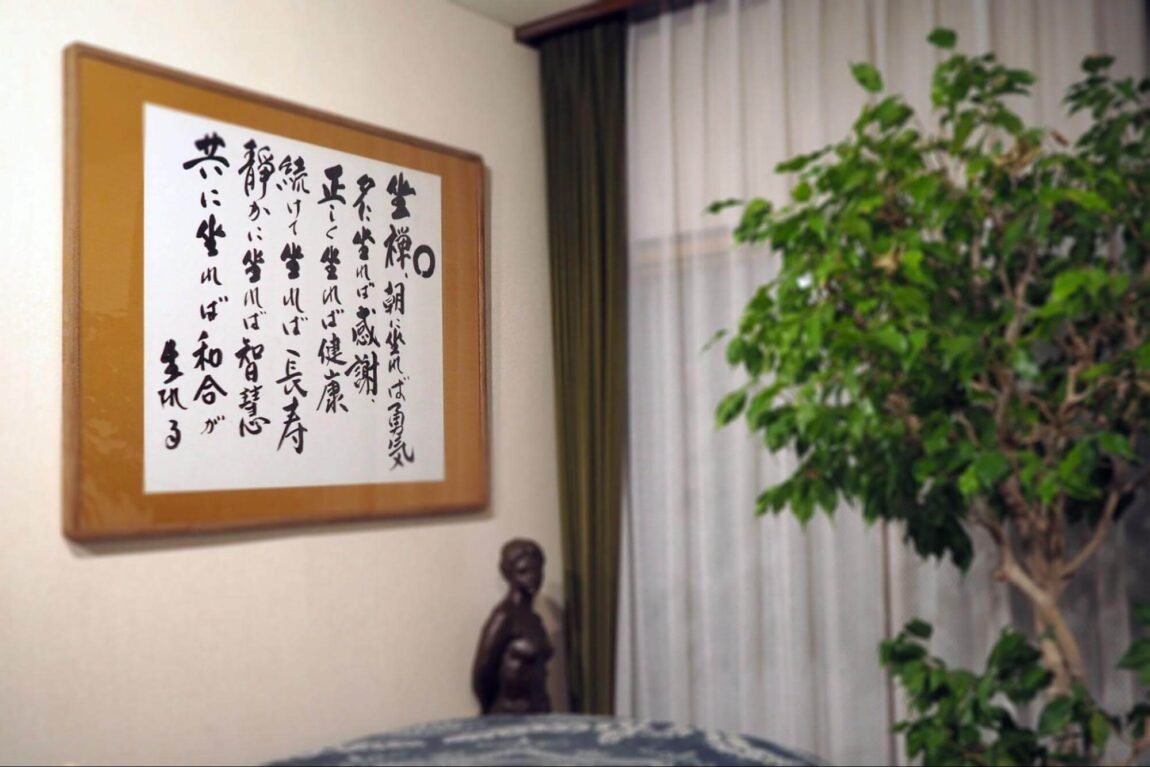
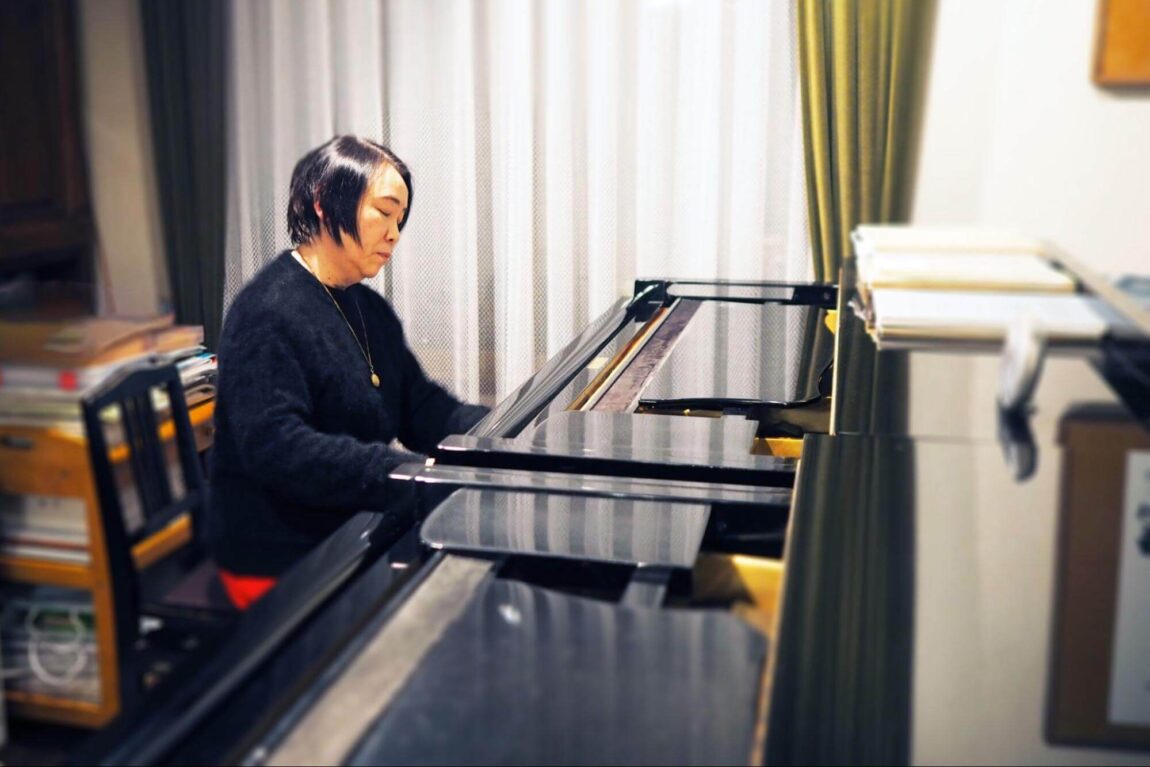
-
Music group Andante
Miwako Sato
Started playing the piano at the age of 5 and specializing in it at Ueno Gakuen for 10 years. She studied piano under Momoyo Iimura and Saburo Aoyama, voice under Naomichi Motozawa, and the organ under Tsuguo Hirono. After graduation, she began performing, and made radio appearances as a soloist, duoist, and accompanist. She also organized Sato Music School at her home (Music Group Andante). Taught students to enter music colleges (piano major, solfège, music theory, music essay, etc) and trained them to become experts.
She was a music teacher at Edogawa Gakuen Toride Junior and Senior High School for 35 years. After the completion of the auditorium in 1999, she was involved in organizing biannual in-school concerts and music events inviting and producing many famous musicians. She aims to promote not only the piano, but also the joy of music and ensembles. Currently a member of the Ibaraki Prefecture Newcomer Concert Executive Committee.
Phone: 0297-72-4584
E-mail: satomiwakojp[a]yahoo.co.jp *Please change [a] to @.